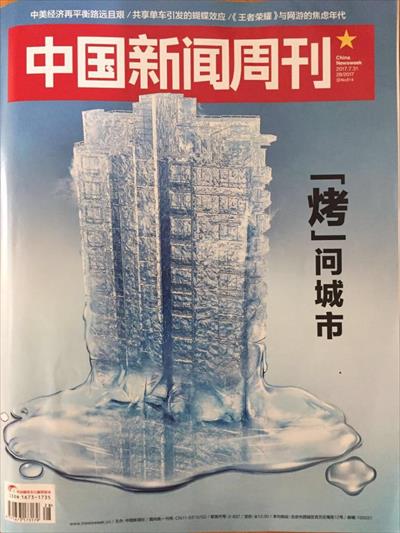
In north China, scorching weather used to appear only in summer, but this year, high temperatures popped up in spring. In the Beijing-Tianjin-Hebei region, this summer has had many more days with high temperatures than in previous years. Against the backdrop of global warming, it's becoming hotter and hotter in summer in China. Big cities with hot summers are known as "hot stoves," and there is even a new list ranking "hot stove" cities circulating online.
According to weather experts, the main reason for extremely hot weather in big cities is the urban heat-island effect. A city of several million people tends to be 0.5-1 ℃ hotter than its suburbs. Many factors have contributed to this effect. Compared with soil or water, asphalt roads absorb more heat and all the heat absorbed during the daytime remains within the city. Besides, numerous cars and air conditioners also add heat to cities. Meanwhile, increasing pollution means more solid and liquid airborne particles that can absorb heat radiation and prevent heat from dispersing during the night.
Greenhouse gases and other man-made factors have become the major cause of global warming and extremely high temperatures. Global warming and city clustering has increased 60-fold the probability of extremely high temperatures in the Yangze River Delta region compared to the 1950s.
As for how to mitigate the urban heat-island effect, one method is to separate building blocks with trees, woods, or rivers, etc. Besides, controlling population density, encouraging residents to increase rooftop greenery by offering subsidies, and increasing water bodies within cities, will also help to lower city temperatures. An important point is that cities must plant more trees instead of grass, as trees are more effective in adjusting temperature within a limited area. Greenery in cities will help to absorb not only greenhouse gases, but also particles, so as to reduce heat. There are many ways to fight extreme heat in summer, and the key is to improve a city's ecological matrix.
(This is an edited excerpt of an article published in China Newsweek on July 31)